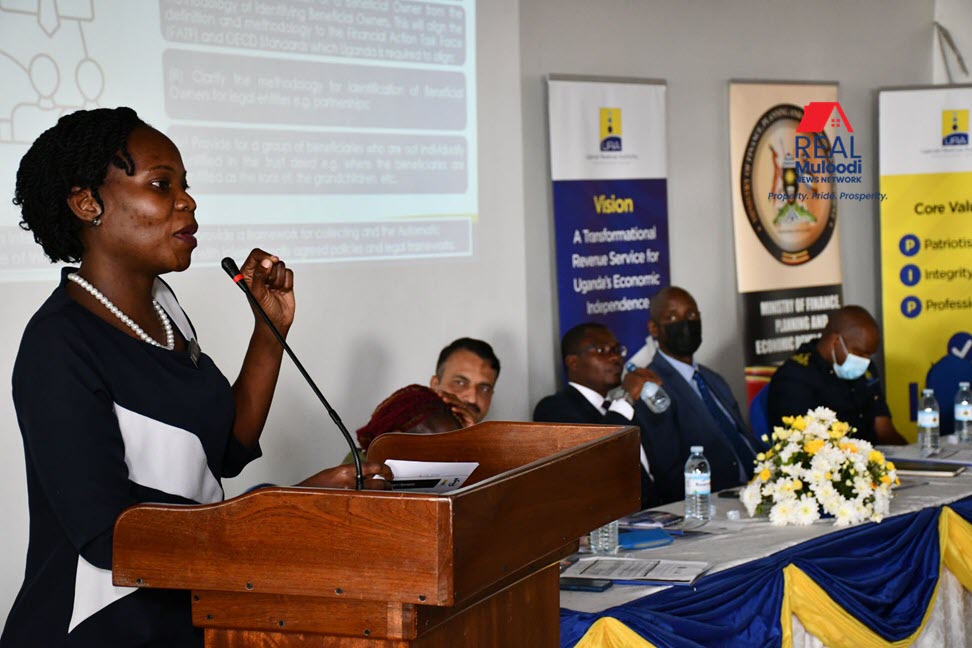UGANDA, Kampala | Real Muloodi News | Uganda Revenue Authority (URA) has announced that the penalty for a taxpayer who provides false or misleading information to the URA about his or her business has increased from USh4m to USh110m.
The penalty is part of the larger pool of penalties that came into force on July 1st, 2022, as a way of improving compliance.
The move comes as URA has begun to ramp up investigations into landlords who are not being honest about their rental income earnings, after the recent launch of the fully operational Rental Tax Compliance System (rTCS) which went live on April 18th, 2022.
rTCS integrates data between various government agencies to collectively determine property ownership, property type, tax obligations, and tax history for any individual or corporation in a single data repository.
Government agencies that have contributed data for rTCS include Ministry of Lands, Housing and Urban Development (MLHUD), Local Government, Kampala Capital City Authority (KCCA) Uganda Registration Services Bureau (URSB), National Identification & Registration Authority (NIRA), National Water and Sewerage Corporation (NWSC), among others.
According to the Tax Authority, the platform is designed specifically for identifying linkages between property assets, individuals, and organisations, then calculates, scores, prioritises and presents the taxpayers who are out of compliance with paying rental income tax.
The URA Commissioner General, John Rujoki Musinguzi, estimates only 8 per cent of landlords are in compliance with their rental tax obligations.
During a recent meeting with large taxpayers, Musinguzi described the paltry USh120b collected each year from taxes on rental income as “unbelievable” given the rapid expansion of the real estate industry. The sheer volume of property development in Kampala over the last 5 years indicates that a lot of revenue is going uncollected.
Musinguzi said, “The low level of compliance among landlords is unfair to other compliant taxpayers from other sectors of the economy. The trend also significantly reduces the much needed revenue required to enable government services to the citizens.”
However, with the roll out of the rTCS, this trend is set to change for the better. The URA is investigating each of the identified taxpayers by employing various analytics to prove occupancy for the last five years, including utilities usage.
Two weeks ago, URA issued a warning to landlords via social media, confirming the tax investigations team has now turned it’s focus to this largely undeclared revenue source:
“Dear Landlords, kindly take note of this important reminder. It is an offense against the tax laws to under declare your rental income to URA. Kindly file and pay all your taxes before the tax investigations team invites itself to pay you a visit,” URA warned.
Dear Landlords, kindly take note of this important reminder. It is an offense against the tax laws to under declare your rental income to URA.
Kindly file and pay all your taxes before the tax investigations team invites itself to pay you a visit. #URATickTock | #StopTaxFraudUG pic.twitter.com/qZrbHdvwkh
— Uganda Revenue Authority (@URAuganda) June 22, 2022
Not only could landlords face stiff penalties if they provide false information about their rental income to the URA, those landlords who are VAT registered but have not implemented URA’s Electronic Fiscal Receipting and Invoicing Solution (EFRIS), or who are not issuing EFRIS receipts to their tenants, could face additional penalties.
EFRIS is mandatory for all VAT taxpayers, including all businesses with an annual turnover of sh150m and above.
As of July 1, failure to use EFRIS will require an offending taxpayer to pay 1,500 currency points or imprisonment not exceeding 10 years or both.
Each currency point translates into USh20,000, which means that such an offence committed under EFRIS will attract USh30m.
Ms Diana Mwondha Kisaka, the URA acting commissioner domestic taxes, says the new penalties were among the tax amendments that will apply during the 2022/23 financial year. The amendments, she says, seek to improve revenue collections and enforce compliance given that there is a big mismatch between the number of Ugandans on the URA register and estimates of income generating activities.
Therefore, Ms Kisaka says, the penalties will act as a deterrent measure as well as improve compliance.
“We have decided to increase this penalty. Some people give false information to URA. If we discover we shall impose a penalty of Shs110m on your business,” she said.
The penalties will be key is helping URA to realise its 2022/23 financial year tax collection target of Shs25.6 trillion. The Shs25.6 trillion collections will seek to fund the 2022/23 Budget of Shs48 trillion of which about 53 percent, is expected to be financed by tax and non-tax revenues sourced internally.
READ MORE LIKE THIS:
URA Deploys Rental Tax Compliance System, Investigations into Non-Compliant Taxpayers Underway



